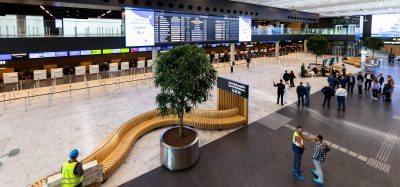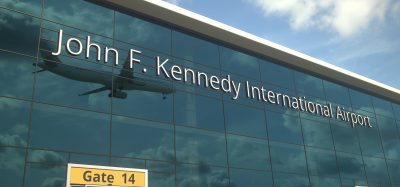Air Transport Action Group explores the fundamental role of civil aviation
- Like
- Digg
- Del
- Tumblr
- VKontakte
- Buffer
- Love This
- Odnoklassniki
- Meneame
- Blogger
- Amazon
- Yahoo Mail
- Gmail
- AOL
- Newsvine
- HackerNews
- Evernote
- MySpace
- Mail.ru
- Viadeo
- Line
- Comments
- Yummly
- SMS
- Viber
- Telegram
- Subscribe
- Skype
- Facebook Messenger
- Kakao
- LiveJournal
- Yammer
- Edgar
- Fintel
- Mix
- Instapaper
- Copy Link
Posted: 2 October 2018 | International Airport Review | 1 comment
The air transport industry supports 65.5 million jobs and creates $2.7 trillion in economic activity, according to a recent report from Air Transport Action Group.


The report, Aviation: Benefits Beyond Borders, explores the fundamental role civil aviation plays for today’s society and addresses the economic, social and environmental impacts of this global industry.
Launching the report, ATAG’s Executive Director, Michael Gill, said: “More people in more parts of the world than ever before are taking advantage of safe, fast and efficient travel. There are over 10 million women and men working within the industry to make sure 120,000 flights and 12 million passengers a day are guided safely through their journeys. The wider supply chain, flow-on impacts and jobs in tourism made possible by air transport show that at least 65.5 million jobs and 3.6 per cent of global economic activity are supported by our industry.”
The report also looks at two future scenarios for growth in air traffic and related jobs and economic benefits. With an open, free-trade approach, the growth in air transport will support some 97.8 million jobs and $5.7 trillion in economic activity in 2036. However, if governments create a more fragmented world, over 12 million fewer jobs and $1.2 trillion less in economic activity would be supported by air transport.
The report also found that, air transport supports 65.5 million jobs and $2.7 trillion in global economic activity, and over 10 million people work directly for the industry itself. Air travel carries 35 per cent of world trade by value ($6.0 trillion worth in 2017), but less than one per cent by volume (62 million tonnes in 2017). Airfares today are around 90 per cent lower than the same journey would have cost in 1950 – this has enabled access to air travel by greater sections of the population. It also shows that if aviation were a country, it would have the 20th largest economy in the world – around the same size as Switzerland or Argentina. Aviation jobs are, on average, 4.4 times more productive than other jobs in the economy. While 57 per cent of world tourists travel to their destinations by air.
Director General of Airports Council International, Angela Gittens, said: “Airports are crucial links in the air transport value chain that drive economic and social benefits for the local, regional, and national communities they serve. Airports act as catalysts for employment, innovation, and improved global connectivity and trade. In responding to the growing global demand for air services, airports – in partnership with the wider aviation community – are also taking a lead role in minimising and mitigating the environmental effects of aviation and pursuing sustainable development”.
Civil Air Navigation Services Organisation (CANSO) Director General, Jeff Poole, said: “The provision of efficient, safe and cost-effective air traffic management is a key enabler to the benefits of aviation. CANSO and its Members are achieving this through new technologies (e.g. spaced-based surveillance, digitisation) and new procedures (e.g. air traffic flow management). However, States need to play their part by enabling harmonised airspace and investments in ATM infrastructure”.
Alexandre de Juniac, Director General and CEO of the International Air Transport Association, said: “Airlines empower people’s lives and turbo-charge the global economy through a worldwide network that safely carries more than 4 billion passengers and 62 million tonnes of freight each year. In challenging political, economic and environmental times, the ability of aviation – the business of freedom – to sustainably connect cultures and spread prosperity beyond borders has never been more important.”
The Director General of the International Business Aviation Council, Kurt Edwards, added: “All sectors of aviation contribute to the industry’s benefits globally. The business aviation sector employs almost 1.5 million people around the world, contributes hundreds of billions of dollars to the global economy, and provides connections to and economic activity in remote regions and under-served locations. Business aviation allows businesses to thrive in small or medium-size towns and to stay connected to the rest of the world. Often, business aircraft operations at a remote airstrip serve as the catalyst for economic development in small communities.”
Related topics
Aeronautical revenue, Airside operations, Passenger experience and seamless travel, Passenger volumes, Tourism
Related organisations
Related people
Alexandre de Juniac, Angela Gittens, Jeff Poole, Kurt Edwards



















I am a civil aviation, aerospace and defence journalist, as well as an analyst, based in Mumbai, India. The Air Transport Action Group has played a sterling role in publicising the importance of civil aviation for providing a country with local as well as global connectivity, which leads to socio-economic development. ATAG has- as an example – created enhanced awareness among Government officials world-wide, who often take commonsensical decisions on civil aviation – decisions based on pure commonsense rather than technical, financial, commercial, or such other considerations, which invariably harm those countries’ national interests.
Do keep up the good work.
Hormuz Peshotan Mama